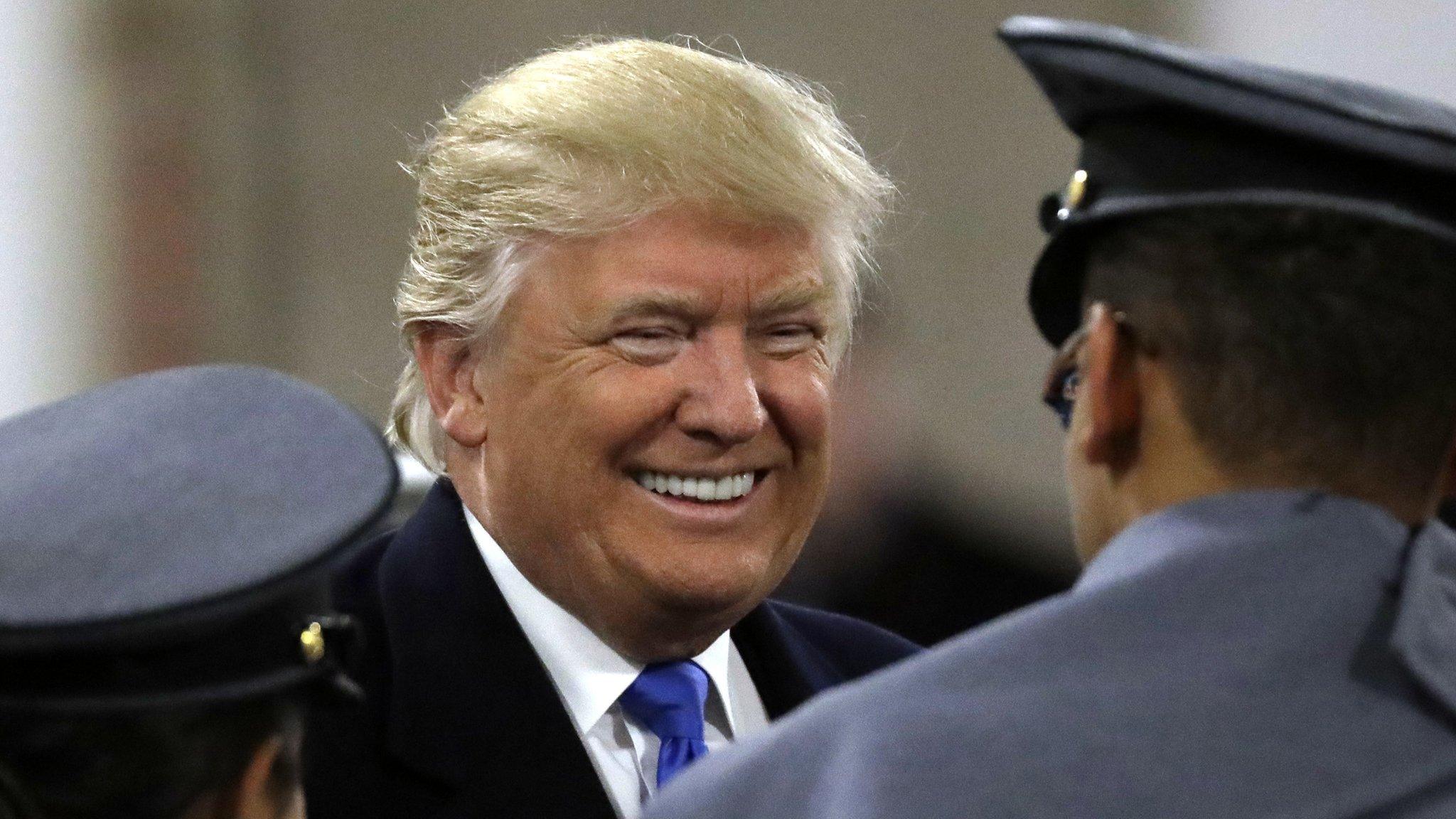Does Donald Trump need a daily briefing?
- Published
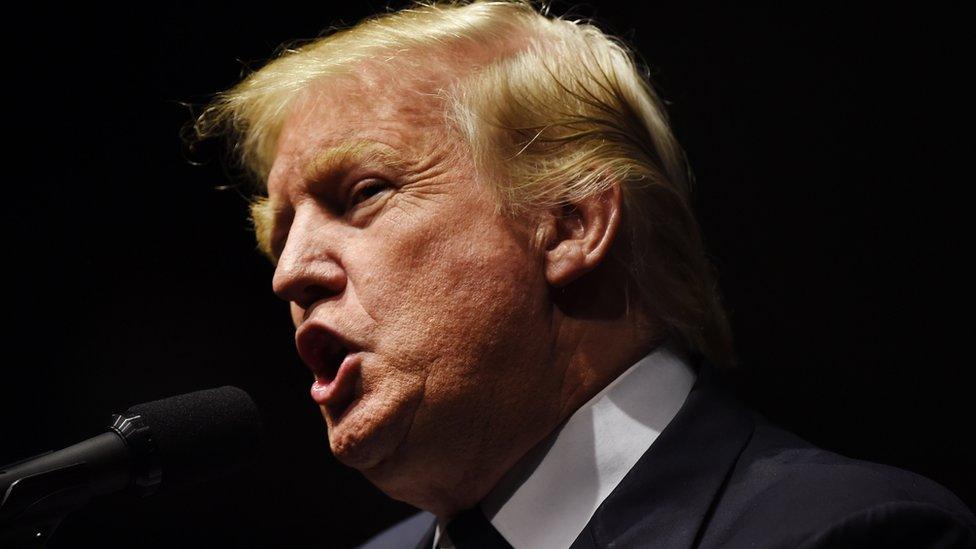
US President-elect Donald Trump said he doesn't want to be briefed every day
For the CIA, the president's daily brief - an in-depth look at national-security issues - is sacred. The president-elect sees things differently.
Officials from the CIA and other intelligence agencies provide a briefing each day to the president, telling him about potential threats, in a tradition that goes back decades.
But President-elect Trump said he plans to treat the briefings in a novel way. He has received only four of them since the election.
He said he doesn't need to receive the briefings in the way his predecessors did. Instead, he wants to hear from the officials every now and then (not five times a week).
"I'm a smart person," he said. "I don't have to be told the same thing in the same words every single day."
For those who have worked in the intelligence community, a constellation of federal agencies that encompasses the Central Intelligence Agency, this comes as a shock.
Intelligence officials say the daily brief helps the president keep people in the US safe from another terrorist attack - and could prevent a nuclear war.
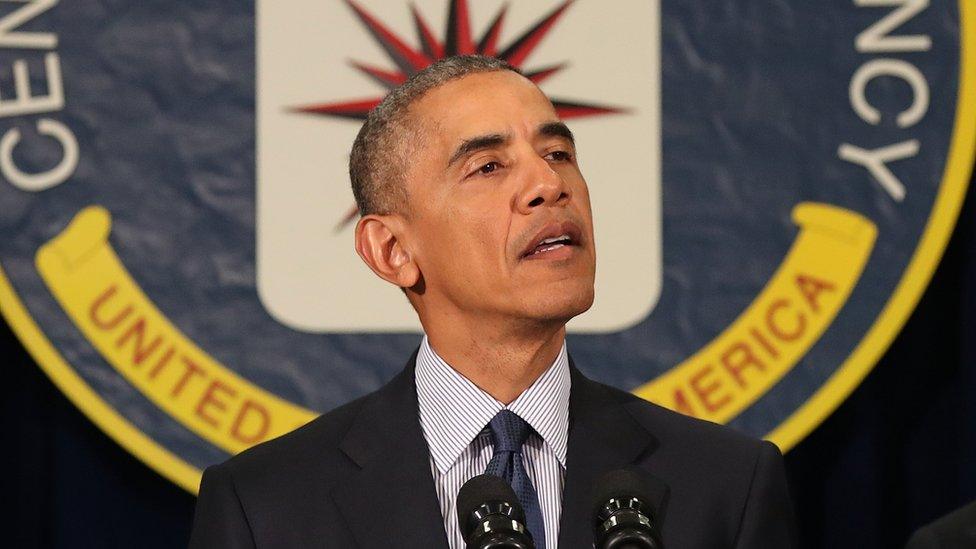
Trump criticised Obama, shown here at the CIA, for the way he received intelligence reports
In addition, the daily brief helps to foster a good relationship between the president and the intelligence staff. They learn about each other's world view and discover what's important at the White House and at the CIA. The two sides also learn to trust each other, an important part of crisis management.
The relationship between the president-elect and the spymasters, however, is unusually tense. He seems impatient with their work and has criticised their findings. He's found fault with the way intelligence officials have described hacking efforts, saying he doubts their conclusions about the way Russians apparently tried to interfere with the election.
That is what he said several days ago. Other times, he's spoken out in support of the CIA. When it comes to his views of the US intelligence officials, he's a bundle of contradictions.
In September 2014, Mr Trump attacked President Barack Obama for - in his view - not paying attention to their findings. He tweeted, external: "Fact - Obama does not read his intelligence briefings nor does he get briefed in person by the CIA or DOD. Too busy I guess!"
His observations - both good and bad - about the intelligence agencies have often focused on the daily brief.
The presidential daily briefing at first glance seems mundane. It's a compilation of news about global events, based on information collected from intelligence agencies that are monitoring activities around the world.
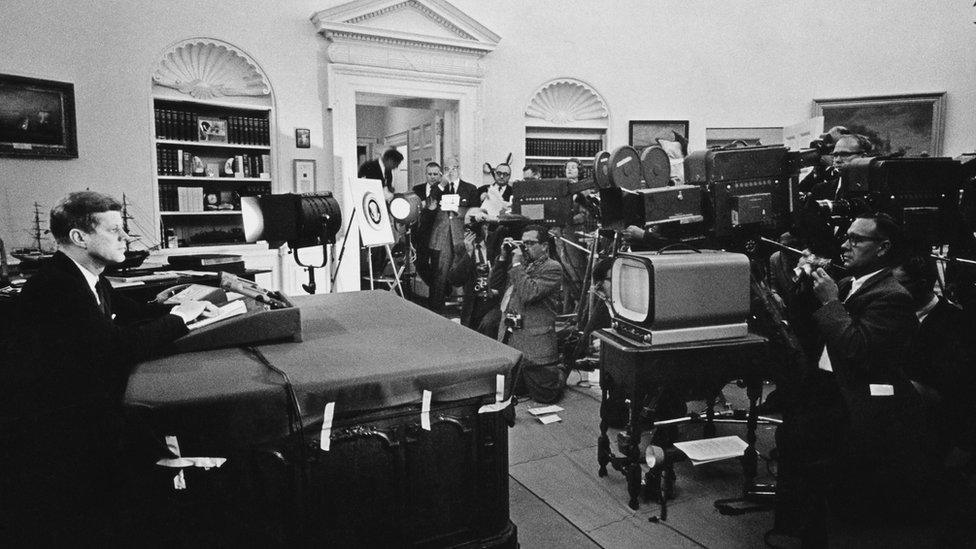
President Kennedy, shown discussing Cuba, relied on the briefings during the crisis
"It looks like a juiced-up BBC report," said Fred Hitz, a former inspector general of the Central Intelligence Agency.
The information is edited into a report by a group of men and women who work for the director of national intelligence. The briefing can be delivered in person by intelligence officers who go to the White House or to Trump Tower, depending on where their "customer", as they put it, is located. It can also be provided in written form.
The brief carries weight - for practical and philosophical reasons. David Priess, a former CIA officer and author of The President's Book of Secrets, said: "The brief is about as sacred as it gets in the intelligence community."
They see it as a revered institution that acts as a bridge between the leader of the nation and the clandestine world of espionage. They say the brief is much more than just a meeting or an exchange of information.
It has played a key role for presidents throughout US history.
The intelligence provided in the briefings was crucial during the Cuban missile crisis of 1962. Randall Woods, the author of Shadow Warrior: William Egan Colby and the CIA, said the intelligence officials found out about what Russians and Cubans were doing - and informed President John F Kennedy in their briefings.
Afterwards Mr Kennedy was able to communicate with his adversaries and in this way, Mr Woods said, was able to "avoid a nuclear showdown".
The daily briefings also helped President Bill Clinton avoid a nuclear war with North Korea, said Mr Woods, discussing a little-known chapter in US history. (The fact that this incident was not widely known, he said, is "deliberate").
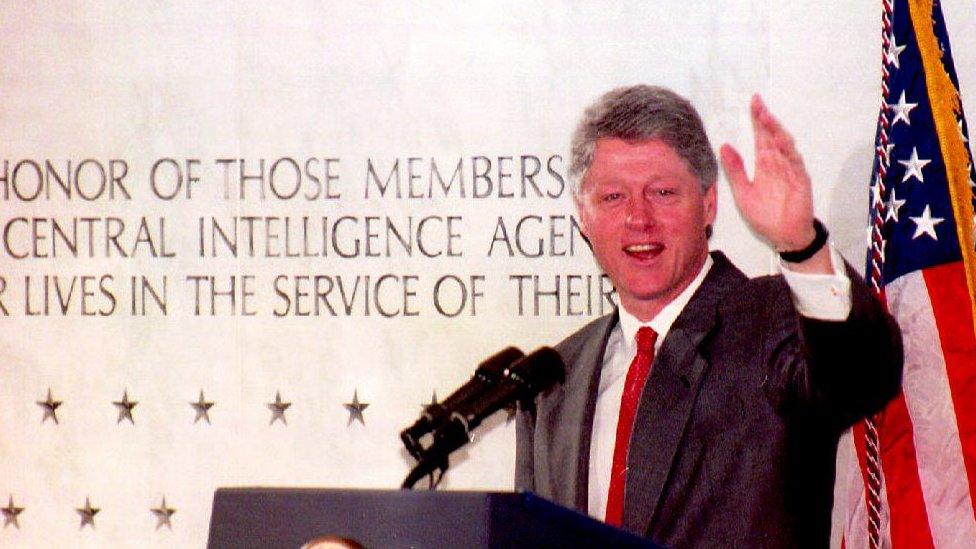
President Clinton, shown at the CIA, spoke frequently with intelligence officials
Other times, the president has listened to his briefers - and challenged them. When the briefers said Nicaragua President Daniel Ortega would be re-elected in 1990, President George HW Bush said he disagreed. He thought Ortega wouldn't win.
The president bet "an ice cream cone", said Mr Priess, that he was right. Ortega lost. The following day, the briefers brought the president an ice cream cone.
Mr Bush and his briefers didn't always agree on the intelligence or on their assessment of world events, but they had a close relationship. Equally important, the president heard their views on a regular basis.
"The very idea that a chief executive would - how shall I say - turn down the opportunity to be briefed - it's quite frightening," said Woods.
Others, however, believe a change in the briefing schedule is simply a different approach by a new president - and things will be fine.
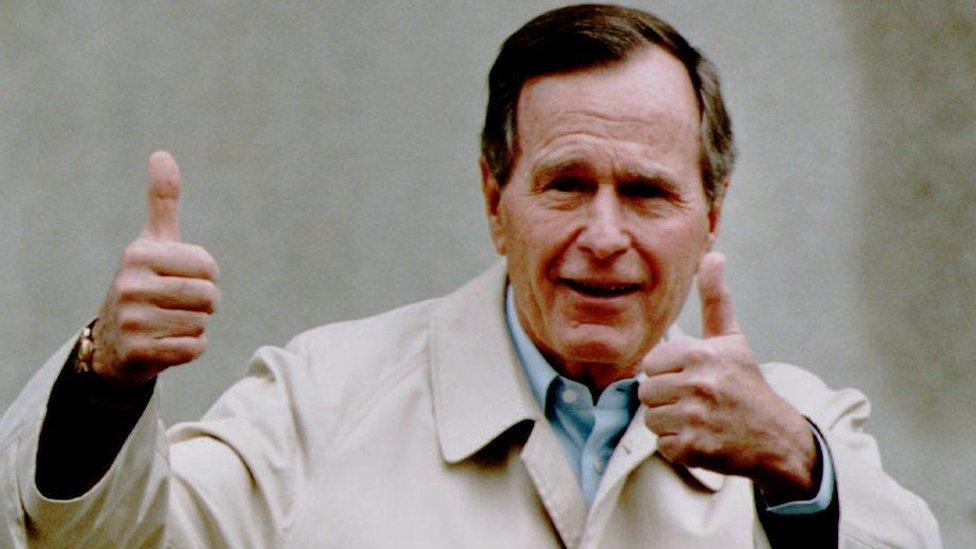
President George HW Bush, shown in 1993, sometimes disagreed with the CIA
David Inserra, an analyst at the Heritage Foundation, a conservative policy group, said the intelligence briefings could be less frequent - but longer. The president could ask Reince Priebus, the incoming White House chief of staff, to attend the briefings and tell him what he's learned.
His number two, Mike Pence, gets a daily briefing and can alert him to changes, Mr Trump said.
Jason Miller, the transition team's communications director, told reporters on Tuesday the president-elect has been speaking regularly to Lt Gen Michael Flynn, his choice for national security adviser, and other advisers about security issues.
Mr Miller said: "Gen Flynn and others keep him updated at all times."
"I can imagine a world in which the structure of the briefings is different," said Inserra.
He's confident the process of briefing Mr Trump, however the process is managed, will continue to function smoothly and in a way that doesn't "result in nuclear war".
Follow @Tara_Mckelvey, external
- Published18 August 2016
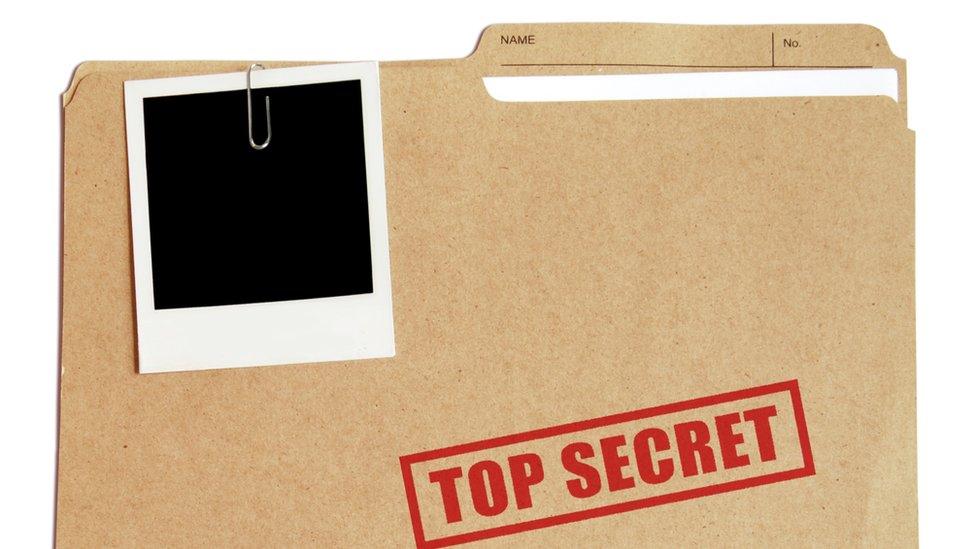
- Published10 December 2016
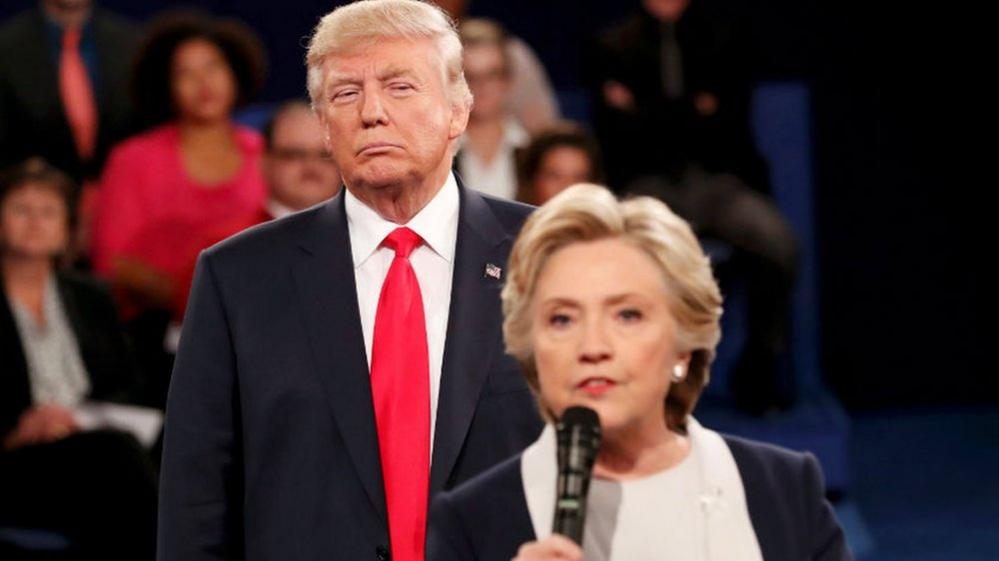
- Published12 December 2016
